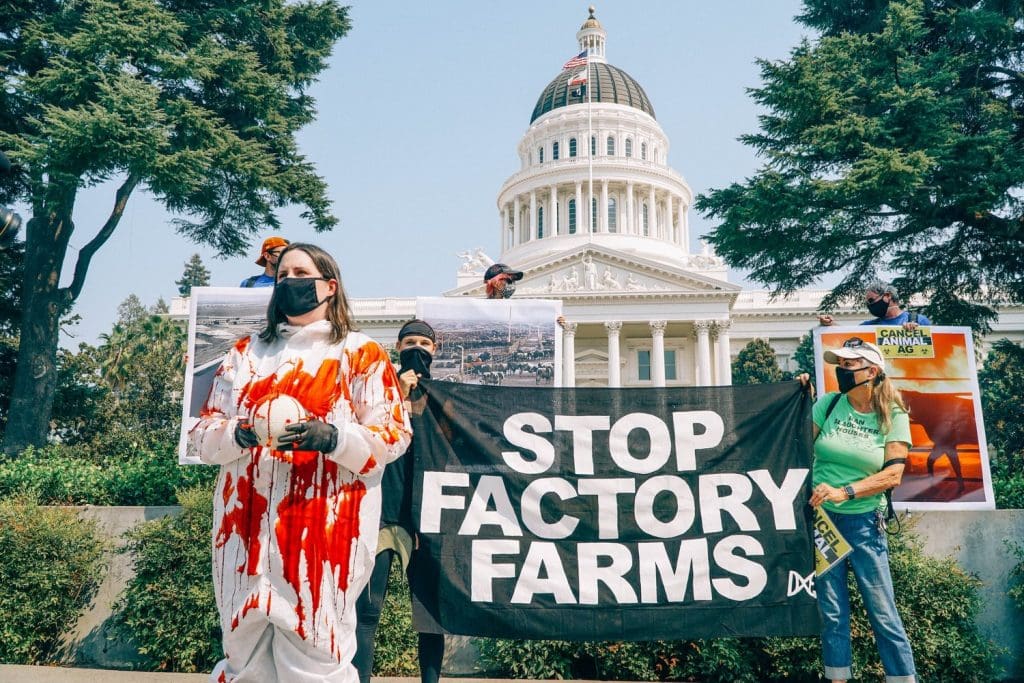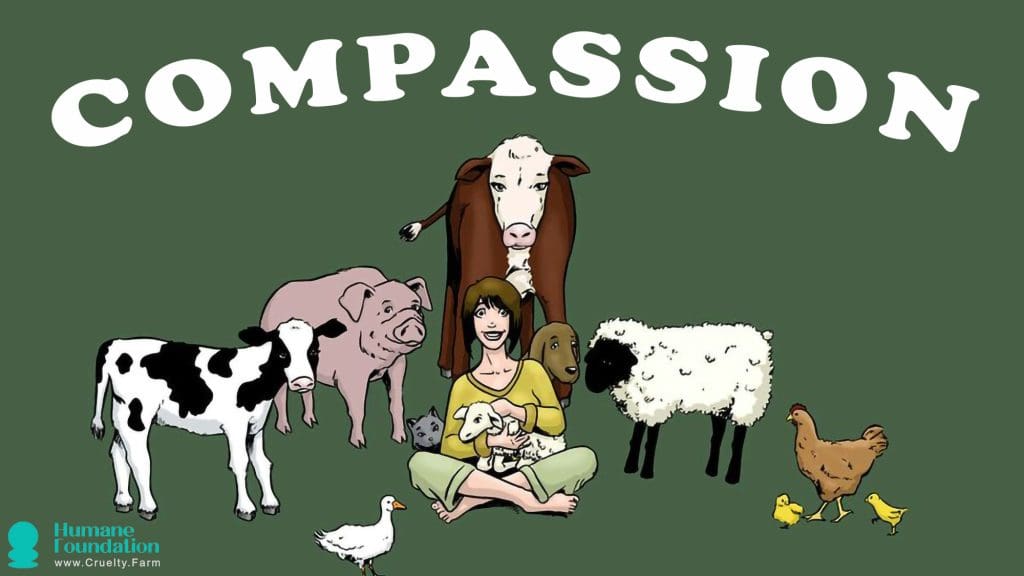Veganism is more than a dietary choice—it’s a movement rooted in compassion, sustainability, and health that has the power to bridge political divides. In an era marked by polarization, this lifestyle offers a unifying platform where shared values like animal welfare, environmental stewardship, and personal well-being can transcend ideological boundaries. By focusing on these universal concerns rather than partisan differences, veganism invites individuals from all walks of life to collaborate on creating a kinder, healthier planet. This article explores how embracing plant-based living can break barriers and foster collective progress toward a more just and sustainable future for all beings
Veganism, defined as a way of living that seeks to exclude all forms of exploitation and cruelty towards animals, has been gaining traction in recent years as a growing number of people are becoming more conscious of their food choices. While it is commonly associated with environmentalism, health consciousness, and animal rights activism, veganism is rarely seen as a political stance. However, in today’s polarized political climate, it is becoming increasingly important to recognize the intersectionality of veganism and its potential to transcend political ideologies. Despite its origins in ethical and moral principles, veganism has the potential to bridge the gaps between political parties and unite individuals from all walks of life. In this article, we will delve into the political implications of veganism and explore how it can serve as a unifying force in a society that is often divided by conflicting ideologies. Furthermore, we will examine the reasons why veganism should not be limited to one political ideology, but rather embraced by individuals from all sides of the political spectrum in order to achieve a more compassionate, sustainable, and just world.

Veganism: bridging political divides through compassion
In today’s politically charged climate, it is often difficult to find common ground or bridge divides between individuals with differing ideologies. However, when it comes to veganism, there is an opportunity for unity. Arguing that concern for animal welfare, environmental sustainability, and personal health should unite rather than divide people across political spectrums. Veganism transcends political ideologies by appealing to shared values of compassion and empathy. By advocating for the ethical treatment of animals, the preservation of our environment, and improvements to personal health, veganism provides a platform for individuals from diverse political backgrounds to come together and work towards a common goal. It encourages open dialogue and understanding, fostering a sense of collective responsibility towards creating a more compassionate and sustainable world. Rather than being confined to one specific political camp, veganism can serve as a unifying force, reminding us that our shared humanity extends beyond political ideologies.
Uniting for animals, planet, ourselves
In an era where partisan politics often dominates the conversation, it is imperative that we find common ground and unite for the betterment of animals, the planet, and ourselves. The welfare of animals, the sustainability of our environment, and our personal health should not be viewed as separate issues, but rather interconnected aspects that require our collective attention and action. By recognizing the shared values of compassion, environmental stewardship, and personal well-being, we can transcend political ideologies and work towards a more harmonious future. Whether it’s advocating for animal rights, supporting sustainable farming practices, or adopting a plant-based diet, we have the power to make a positive impact that benefits not only ourselves but also the planet and all living beings. It is through this unity and collaboration that we can pave the way for a more compassionate and sustainable world for generations to come.
Breaking barriers with plant-based plates
Arguing that concern for animal welfare, environmental sustainability, and personal health should unite rather than divide people across political spectrums, breaking barriers with plant-based plates becomes not just a dietary choice, but a powerful tool for change. By embracing a plant-based lifestyle, individuals can contribute to reducing animal suffering and promoting a more ethical treatment of animals. Additionally, the environmental impact of animal agriculture is undeniable, with studies showing that it is a leading cause of deforestation, greenhouse gas emissions, and water pollution. By shifting towards plant-based plates, we can mitigate these environmental consequences and work towards a more sustainable future. Furthermore, a plant-based diet has been proven to offer numerous health benefits, including reduced risk of chronic diseases such as heart disease, diabetes, and certain types of cancer. Emphasizing the shared values of compassion, sustainability, and personal well-being, plant-based plates offer a powerful opportunity to bridge political divides and advocate for a brighter, healthier, and more inclusive future for all.
Veganism: a cause worth arguing
Veganism, as a cause worth arguing, goes beyond dietary choices and enters the realm of politics and ideology. It is an issue that transcends political spectrums, as it encompasses concerns for animal welfare, environmental sustainability, and personal health. The arguments advocating for veganism are rooted in the belief that these three aspects should unite people rather than divide them. By promoting a plant-based lifestyle, individuals can actively contribute to reducing animal suffering and promoting ethical treatment of animals. Furthermore, the environmental impact of animal agriculture cannot be ignored, making veganism an imperative solution to combat deforestation, greenhouse gas emissions, and water pollution. Additionally, adopting a vegan diet has been scientifically proven to offer numerous health benefits, including a decreased risk of chronic diseases such as heart disease, diabetes, and certain types of cancer. In a world where compassion, sustainability, and personal well-being are shared values, veganism becomes a cause that is worth arguing, as it offers a path towards a more compassionate, sustainable, and healthier future for all.
Putting aside politics for progress
In an era where political divisions seem to dominate every aspect of our lives, it is crucial to put aside politics for progress when it comes to veganism. Arguing that concern for animal welfare, environmental sustainability, and personal health should unite rather than divide people across political spectrums. By focusing on these shared values, we can work towards creating a more compassionate and sustainable world, regardless of our political affiliations. Instead of viewing veganism as a political agenda, we should see it as an opportunity to come together and make positive changes that benefit both ourselves and the planet. Let us set aside political differences and focus on the common goals of promoting animal rights, protecting the environment, and prioritizing personal well-being. Only then can we truly make meaningful progress towards a more harmonious and inclusive society.
Compassion knows no political boundaries.

Compassion knows no political boundaries. It is a universal value that transcends political ideologies and should not be limited by partisan lines. Regardless of our political beliefs, we can all agree that showing compassion towards others, including animals, is a fundamental aspect of being human. It is a reflection of our empathy, kindness, and the recognition of the inherent worth of all living beings. In a world where political division is rampant, it is important to remember that compassion is a unifying force that can bring people together, fostering understanding and empathy across the spectrum. By recognizing the power of compassion and prioritizing it in our decision-making processes, we can create a society that is more inclusive, equitable, and just for everyone, regardless of their political affiliations.
Veganism: a common ground solution
Arguing that concern for animal welfare, environmental sustainability, and personal health should unite rather than divide people across political spectrums. Veganism offers a common ground solution that addresses these interconnected issues. Regardless of our political beliefs, we can all agree that the mistreatment of animals is ethically wrong and that we should strive to minimize harm. By adopting a vegan lifestyle, individuals can actively choose to support the well-being of animals and contribute to the reduction of animal cruelty. Additionally, veganism also aligns with environmental sustainability efforts by reducing greenhouse gas emissions, preserving natural resources, and mitigating deforestation. Moreover, the health benefits of a well-planned vegan diet are supported by scientific evidence, offering a solution to combat chronic diseases and improve overall well-being. Embracing veganism as a common ground solution allows individuals from all political ideologies to make choices rooted in compassion, sustainability, and personal health, ultimately working towards a more harmonious and ethical world.
Finding unity in plant-based choices
Finding unity in plant-based choices goes beyond political ideologies. It is a movement that transcends party lines, bringing people together through shared values and concerns for animals, the environment, and personal health. By embracing plant-based choices, individuals can bridge the divide and work towards a more compassionate and sustainable future. Plant-based diets offer a versatile and inclusive approach, accommodating a wide range of dietary preferences and cultural backgrounds. Whether it’s reducing meat consumption, incorporating more plant-based meals, or fully embracing a vegan lifestyle, these choices can have a positive impact on animal welfare, environmental sustainability, and personal health. By focusing on the common goals we share, we can find unity in our commitment to making mindful and responsible choices for ourselves, the planet, and future generations.
Going beyond politics for animals.

Arguing that concern for animal welfare, environmental sustainability, and personal health should unite rather than divide people across political spectrums is crucial in the discussion surrounding veganism. While political ideologies often shape our beliefs and values, the well-being of animals and the environment should not be confined to any particular party or agenda. The ethical treatment of animals, the preservation of our planet, and the promotion of personal health are universal concerns that transcend political boundaries. By recognizing the interconnectedness of these issues, we can foster a broader understanding and create a space for meaningful dialogue that encourages individuals from all political backgrounds to embrace plant-based choices. This inclusive approach promotes collaboration, education, and advocacy, ultimately working towards a more compassionate and sustainable world for animals and humans alike.
Inclusive activism for a better world
Inclusive activism for a better world goes beyond political affiliations and seeks to address the intersecting struggles faced by marginalized communities. It acknowledges that social justice issues cannot be isolated or solved independently, but rather require a holistic and collective approach. By centering the voices and experiences of those who have been historically marginalized, inclusive activism aims to create a more equitable society that uplifts all individuals, regardless of their race, gender, sexual orientation, or socioeconomic status. This form of activism encourages diverse perspectives and fosters collaboration, recognizing that true progress can only be achieved through unity and solidarity. It empowers individuals to challenge systems of oppression and actively work towards dismantling them, ultimately striving for a world where everyone can live with dignity, respect, and equal opportunities for success.
As we have discussed, veganism goes beyond political ideologies and should not be confined to a particular party or belief system. Embracing a plant-based diet is a step towards a more sustainable and compassionate world, and it is important for individuals of all political backgrounds to recognize and support this. By transcending political boundaries, we can work together to create a better future for ourselves, our planet, and all living beings. Let us continue to educate and inspire others to make conscious choices and embrace the powerful impact of veganism.

4.2/5 - (52 votes)



